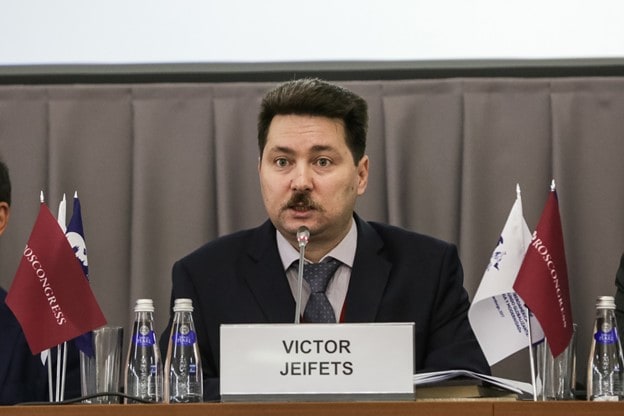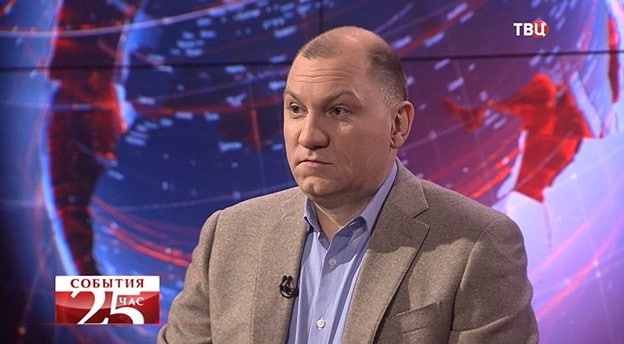At a State Department press briefing, the department's spokesperson Ned Price fielded the following question:
QUESTION: Russian officials have warned Moscow could deploy troops to Cuba and Venezuela if the U.S. and NATO insist on the crisis of Ukraine. Is the U.S. concerned about it? Have you seen any movement in that regard?
MR PRICE: Look, we are not going to respond to bluster. If we do see any movement in that direction, we will respond swiftly and decisively.[1]
The idea of Russia establishing bases in the Carribean and Latin America in the US' backyard was seen as a suitable riposte to NATO's expansion towards the border with Russia.
The speculation was fueled further when Russia's Deputy Foreign Minister Sergei Ryabkov was non-committal about the possibility in a January 13 interview. When asked about the possibility of deploying Russian missiles in Cuba or Venezuela in the event of a failure of negotiations on security guarantees for Russia. Ryabkov said that he did not want to "either confirm or exclude anything."
The Russian Foreign Ministry, expressed surprise over the hysteric Western response to Ryabkov's evasive answer. The ministry put it down to "arrogant thinking in the spirit of we can do everything, but Russia - nothing."
Putin's Press Secretary Dmitry Peskov claimed that the issue of Russian bases "was not specifically broached, and was not raised in recent discussions between Putin and Venezuelan President Nicolas Maduro.[2]
Russian officials and scholars have sought to quash anticipation that Russia would establish bases in Cuba or Venezuela. Former President and current Deputy Chair of Russia's Security Council Dmitry Medvedev said: "Cuba, Venezuela are countries that are close to us, our partners, countries that pursue an independent foreign policy. But these are absolutely sovereign countries. We cannot simply deploy anything in them... simply because it must be consistent with their geopolitical positions and with their own national interests.".
Russian bases would presently run counter to their national interests, since Havana and Caracas want to break out of isolation and establish normal relations with the United States, Medvedev added.[3]
The director of the Institute of the USA and Canada (Russian Academy of Sciences), Valery Garbuzov, predicted that Latin American countries would not agree to the deployment of Russian weapons on their territory. He explained that Cuba and Venezuela, which are under US sanctions, will not want to worsen relations with the United States, and the deployment of Russian missiles will only further tighten the sanctions regime.[4]
Professor Victor Jeifets director of the Center for Ibero-American Studies at St. Petersburg State University is similarly skeptical about Russian bases. Jeifets believes that the Cuban authorities have "no reason to agree to the placement of stations." The mere coincidence of viewpoints of between the Russian Federation and Cuba on the global situation does not suffice. The Cuban government "would like, naturally, large-scale economic assistance." But Moscow is unable to provide assistance comparable on the scale of Soviet era assistance to Cuba.
Jeifets also believes that Cuba has been burned twice before by Russia and this will fuel its reluctance to agree to Russian bases.
"I think that the Cuban authorities will withhold their consent. Cuba is most zealous about its sovereignty and autonomy. And Cuba was very offended at the time - both when, during the Caribbean crisis [the Cuban Missile Crisis], we removed our missiles without consulting them, and when at the beginning of this century, we removed the radar station from Cuba as a gift to the United States, again without considering the Cubans' opinion".[5]

Victor Jeifets (Source: Spbu.ru)
The widely circulated "Moskovskiy Komsomolets" newspaper chose to explore the issue from another angle – the actual military value that would accrue to Russia if such bases were established. The paper discussed the issue with Russian military analyst Ruslan Pukhov director of the Moscow Center for Analysis of Strategies and Technologies (CAST) and member of the Public Council at the Russian Ministry of Defense. Pukhov believed that Venezuela was the more likely candidate for a base as Cuba for the reasons cited above would prove reluctant. However, even given Venezuelan consent, it would be more trouble that it was worth. Advanced military technology had made such bases obsolete as naval groups could do the job just as efficiently and more economically. Additionally, given the political divide in a Venezuela ringed by hostile states, the base would become a security risk and a target of regime opponents and Russian personnel could even find themselves hostages.
Pukhov's analysis follows below:[6]

Ruslan Pukhov (Source: Tvc.ru)
"'It made sense to have military bases off the US coast 40-50 years ago. Now it is not so relevant for us. The development of military technology allows us to threaten, pressure, and strike at the potential enemy's targets from a distance. One doesn't have to be close to his [the enemy's] territory to do so. Thus, from a purely military viewpoint, the existence of such military bases is no longer such an important factor as it was previously,' said the expert [Pukhov].
"According to Pukhov, there is also an important diplomatic aspect to the issue.
"'Hopefully our military and diplomats consulted with Cuban and Venezuelan experts before announcing the establishment of any bases and voicing this decision to the Americans and the press. Otherwise such statements would be insulting to the leadership of those countries,' said the expert.
"The expert believes that in the event of such talks it would be easier to settle the issue of deployment of the Russian base in Venezuela, since we have a short history of relations with this country that is not burdened by any previous disagreements, as in the case of Cuba.
"'Back in the day, explains Pukhov, without Fidel's permission, Nikita Khrushchev withdrew our missiles from Liberty Island and brought them back to Soviet Union, which produced a major crisis in Soviet-Cuban relations. Fidel perceived the step, as a personal insult and humiliation of the Cuban people. Then, later, at the beginning of the 2000s we gave up our Cuban base in Lourdes, which was our main radio-electronic intelligence center. This too was done without individual talks with the Cubans. So we, coarsely speaking, duped them twice with our military bases. Thus, I believe, and with a high degree pf probability, they simply wouldn't want to play the same game with us for the third time, and they won't allow us to deploy anything there. And if we in this situation start making premature announcements, we won't look good,' explained Pukhov.
"Regarding Venezuela, according to the expert, the negotiation process could be simpler. The only question is: do we need it?
"'It is quite possible that the Venezuelan leadership will allow us to establish a base. However, this step will split the country in two, with half [of the population] being in favor, and the other half - sharply opposed. It should be remembered that the country's crime rate is high and it will be very difficult to deploy a real base there, not a nominal one. It will require serious security. One must also bear in mind that Venezuela is ringed by unfriendly states, as an example, Colombia that is 100% pro-American is one such state.
"'So, it may turn out that the base won't pose a threat to the Americans, but instead will be target by threats from pro-American forces. Our people deployed in this country (directly or indirectly) might even become hostages. In short, we should think many times over, whether we should begin the process of deploying our base there,' said Ruslan Pukhov.
"The expert also named the financial aspect as a no less important factor in deciding the issue of permanent bases.
"He stated, 'One has to understand that maintaining a full-fledged military base in a foreign country is a very expensive pleasure that requires huge investments. For that reason, it would be much cheaper (and even more effective today for a military perspective) to create not military bases, but, for example, naval groups, which (without any bases) could, once appearing on the US coast, perform the combat tasks that would be assigned them. We are quite capable of doing this today.'"





